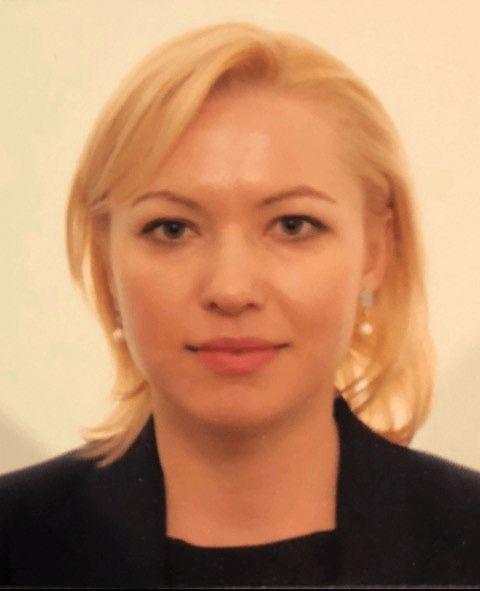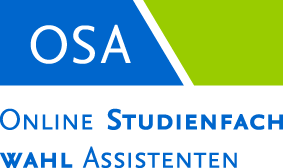Interview with our guest researcher Oksana Osmachko from Kyiv
News vom 20.06.2022
|
Introduction: Oksana Osmachko is a guest researcher at the Institute for Chinese Studies at Freie Universität Berlin. Before coming to Berlin in April 2022, she lived in Kyiv and worked on her PhD at the Department of Oriental Languages at Kyiv National Linguistic University. Currently she is continuing her PhD thesis in Berlin and works with Prof. Genia Kostka, Institute for Chinese Studies, and Prof. Alexander Libman, Institute for East European Studies, on state-sponsored narratives in authoritarian countries in the context of the Ukrainian war. |
 |
Mrs. Osmachko, first of all a warm welcome to the Institute for Chinese Studies! Like many others you had to leave your home almost overnight. When did you decide to come to Germany?
First, let me thank you for inviting me to tell my story. Taking this chance, I'd like to express my deep gratitude to the Institute for Chinese Studies for the possibility to join the university as a guest researcher, and for all the help and support which I constantly receive from all colleagues here.
In Kyiv, there were many rumors in January and the beginning of February related to a possible invasion of Russia to Ukraine. But nobody could imagine that the war would start directly in Kyiv, with the shelling of the Boryspil international airport and many other places in the suburbs of the capital. It's a very scary feeling when you, being a parent of two small children (4 years and 9 months old), must make a decision about what to do in such circumstances. First, I didn't have the intention to leave Ukraine. We all hoped the war would be over in just a few days, maybe a week. But with the days passing by, it became clear that the Russian side didn't have such intention and the situation was getting only worse. So, we decided to leave the country as soon as possible, even though my husband had to stay. Indeed, it was a very hard decision for me. When you are young and have nothing to lose, it's only your decision, but when you have family, children, a home, career, reputation you have gained in years, and you have never planned to immigrate, it is very difficult to leave everything behind. In such a moment, you are under high pressure, and you are not able to make middle-term or long-term plans. My priority was my childrens' safety and so I decided to leave Kyiv. My initial choice was to go to Germany and I'm lucky to have a good friend from Ukraine in Brandenburg, who immediately offered her help.
Was it difficult for you to settle as a Ukrainian researcher in Germany? Organization and Universities, like the Berlin University Alliance, offer support for researchers affected by the war. What was your personal experience?
I heard about organizations like the Berlin University Alliance around the same time and started sending emails to different universities asking for a position as a guest researcher. How happy I was when I received an email that I've been accepted for a scholarship at Freie Universität Berlin and that I could participate in a research project related to my PhD topic.
After my arrival in Germany, I was warmly welcomed by all the colleagues from the Institute for Chinese Studies. Frankly speaking, my initial perception of Germans was that they were less about emotions and more about order, rules, and clarity. What a surprise for me was when I arrived here! I may talk only about Brandenburg now (where I currently live), but I believe it's the same story about the whole country, Germans are very kind, helpful and supportive people. That's why I'm also working on a better integration here, so me and my family could be more useful to the society.
Before coming to Berlin, you have worked at Kyiv National Linguistic University. What was the focus of your research?
I've been a PhD student before coming to Germany. My research was concentrated on the modern political discourse of China during the presidency of Xi Jinping and the concept of power in particular. Ever since my undergraduate studies, I have often been working with official delegations from China as a translator, visiting different regions in Ukraine and China, conducting negotiations at the different levels, having meetings in the Embassies of two countries. That experience has formed my interest to political discourse in general. The concept of power is one of the basic concepts of political discourse, though it has not acquired in-depth profound study in the modern political discourse of China in relation to disinformation and propaganda, and its impact on the functioning of the rule of law.
Would you say that Chinese Studies in Kiev and Berlin are similar? What are the differences?
China Studies in Kiev and Berlin are similar in their love to Chinese language, the culture and philosophy of China. I think that is one of the main conditions for the successful research. In Ukraine, we have a lot of researchers related to the linguistic aspects of Chinese language, Chinese literature or history. In Germany, there are more researchers focusing on other different aspects – politics, economy, philosophy, regional studies of China. I find it very interesting, as there is more space for development.
There are also some significant differences, of course. I guess the core differences are funding options and access to the data sources. In Ukraine, it`s very hard to apply for funding, not only in sinology, but related to philology in general. As a scientific associate, you experience how difficult it is to conduct any kind of research. Usually, you have to work through hundreds of sources in order to find a grain of truth, and make scientific discoveries. For decades Ukraine had a strong philological school with many brilliant researchers, and the sinology school has been actively forming and blooming during the last 20 years. Though, due to the limited scientific fundings and facilities in Ukraine, researchers are sometimes challenged to make an impossible mission possible. They must order necessary data sources from abroad, spend much of their financial savings for their research, or have to think of other ways to conduct their research. So, in some sense, conducting research in Ukraine requires a personal sacrifice – not only of your time, but also financial reserves.
The situation at FU Berlin is absolutely different. Researchers can receive funding for their projects and have access to the FU library, which contains many rare data sources. Researchers also receive other necessary support from the university. That's why doing research here is a pleasure.
In Berlin, you are working at the SCRIPTS project "Propaganda in Russia and China and the case of the Ukrainian war." Could you tell us about your work within the project?
Here I will be working with Prof. Genia Kostka and Prof. Alexander Libman. We will use multiple methods to gain a better understanding of the high public support in Russia and China for Putin's war. Specifically, I will look at propaganda techniques used by the Chinese state to manage information and public opinion. This new SCRIPTS project will officially start in September, and I am really looking forward to joining the team!
Did the war in Ukraine triggered your interest in narratives in authoritarian regimes?
Frankly speaking, it surely did. Before the war in Ukraine, I was not interested politics. I was doing my China Studies learning and mainly tracking changes in the political life of China. But the war has affected every Ukrainian, no matter if you stayed in the country or if you've fled abroad. Living through the more than 100 passing days continuation of February has affected everybody's life. In Ukraine, thousands of people die every day, many of us witness these stories in our inner circle, and the propaganda in Russia works so successfully that millions of Russians still cast doubt about the facts of the death of our citizens, calling them fakes, calling the war a "special operation" in which the Russian military forces hit only military targets. But here, in Germany, you watch the news from Ukraine in real time and can notice the difference between reality and these narratives. That`s why researching propaganda and its technics both in China and Russia present a big interest to me, being personal in all senses. To my mind, Ukraine fights against the aggressor, defending not only our state, but also democratic values and freedoms, and the right of nations to freely choose their own future.
You mentioned that you have worked as a Chinese-Ukrainian translator. What were your experiences? Do you have any advice for students who are interested in working in translation between China and European countries?
I've graduated from university in 2006, obtaining a Master's degree in Chinese and English translation and teaching. I was lucky to be selected for one-year postgraduate study in Ningbo University, Zhejiang province in China. It was a precious experience, forming my way of thinking, interests and a path of future scientific development.
As some time passed, it became clear that the language was a useful tool, and to use it properly, you need some other profound knowledges, either in economy, political science, diplomacy or in business, administration, construction, and any other field interesting for you. That was the reason to continue my study and to get a Master's in business and management.
My main advice to all students is to learn more - in breadth and depth, don't be afraid to advance your knowledge, to master different skills, both soft and hard ones. Breadth of learning refers to the full span of knowledge of your subject. To be a good translator you need to know a lot of background information, so it's useful to read daily news about China, to be familiar with the main scholars conducting research in sinology, to learn more about your own country, its history, economics, political life, religion. Depth of learning refers to the extent to which your knowledge of China and the language should be focused upon, concentrate on it and go deep, practice phonetics, make your pronunciation perfect, make Chinese friends, talk to them more, read Chinese newspapers on a daily basis, continue to practice oral and written translation. All our life today is about communication, if you train your communicational skills, you will always find your place in society and learn how to be useful to it. Even if one day, suddenly, you have to flee your country, you can always find yourself in a better place, if you have knowledges. And last but not the least, in my opinion the most important one is, love what you do, then you will always enjoy and be successful. At the same time, from a practical point of view, you always have more career opportunities with Chinese languages as it is not as common as some other languages. Such approach led me to an opportunity to translate for the First President of Ukraine Leonid Kravchuk (2009-2015), Prime Minister of Ukraine Volodymyr Groysman (2017), Deputy Prime Minister Stepan Kubyv (2015-2017), and other top officials of our country.
What are your plans for the future?
Till the end of October 2022, I will work with Prof. Kostka. At the same time, I will continue working on my PhD and hope to finish it in summer, 2023. Currently a possibility of extending my project involvement has been discussed, I'll update you as soon as I get a positive result.


